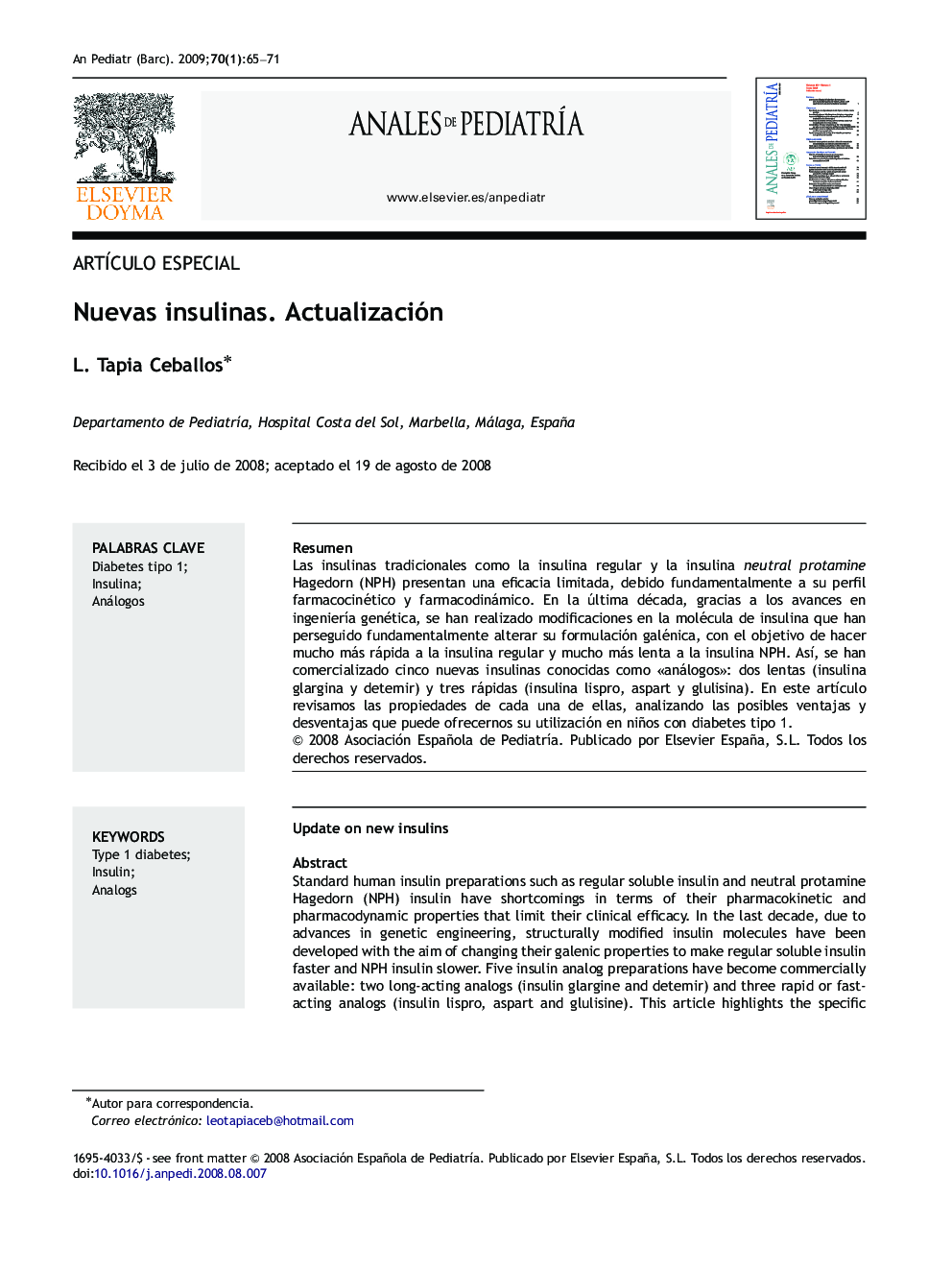| Article ID | Journal | Published Year | Pages | File Type |
|---|---|---|---|---|
| 4143180 | Anales de Pediatría | 2009 | 7 Pages |
Abstract
Standard human insulin preparations such as regular soluble insulin and neutral protamine Hagedorn (NPH) insulin have shortcomings in terms of their pharmacokinetic and pharmacodynamic properties that limit their clinical efficacy. In the last decade, due to advances in genetic engineering, structurally modified insulin molecules have been developed with the aim of changing their galenic properties to make regular soluble insulin faster and NPH insulin slower. Five insulin analog preparations have become commercially available: two long-acting analogs (insulin glargine and detemir) and three rapid or fast-acting analogs (insulin lispro, aspart and glulisine). This article highlights the specific properties of these new insulin analog preparations and focuses on their potential advantages and disadvantages when used in children with diabetes mellitus.
Related Topics
Health Sciences
Medicine and Dentistry
Perinatology, Pediatrics and Child Health
Authors
L. Tapia Ceballos,
